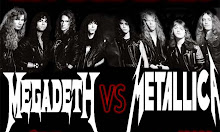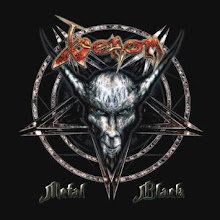 Cobain and Novoselic met in 1985. Both were fans of the Melvins, and frequented the band's practice space. After a couple of false starts at forming their own band, the duo recruited drummer Aaron Burckhard, creating the first incarnation of what would eventually become Nirvana. Cobain later described the sound of the band when they first started as "a Gang of Four and Scratch Acid ripoff." Within a few months, Burckhard was fired from the band. He was temporarily replaced by Dale Crover of the Melvins, who played on the band's first demos. Dave Foster then began a brief tenure as the band's drummer.
Cobain and Novoselic met in 1985. Both were fans of the Melvins, and frequented the band's practice space. After a couple of false starts at forming their own band, the duo recruited drummer Aaron Burckhard, creating the first incarnation of what would eventually become Nirvana. Cobain later described the sound of the band when they first started as "a Gang of Four and Scratch Acid ripoff." Within a few months, Burckhard was fired from the band. He was temporarily replaced by Dale Crover of the Melvins, who played on the band's first demos. Dave Foster then began a brief tenure as the band's drummer.During its initial months, the band went through a series of names, including Skid Row, Pen Cap Chew, and Ted Ed Fred. The band finally settled on Nirvana in early 1988, which Cobain said was chosen because "I wanted a name that was kind of beautiful or nice and pretty instead of a mean, raunchy punk rock name like the Angry Samoans." Nirvana played their first show under the name that March. A couple of months later, the band finally settled on a drummer, Chad Channing.
Nirvana's first release was the single "Love Buzz/Big Cheese" in 1988 on Seattle independent record label Sub Pop. The following year, the band released its first album, Bleach. To record Bleach, the band turned to noted local producer Jack Endino, who had recorded the band's first studio demos. Bleach was highly influenced by the Melvins, by the heavy dirge-rock of Mudhoney, 1980s punk rock, the Pixies, and by the 1970s heavy metal of Black Sabbath. Novoselic noted in a 2001 interview with Rolling Stone that the band had played a tape in their van while on tour that had an album by The Smithereens on one side and an album by the black metal band Celtic Frost on the other, and noted that the combination probably played an influence as well. Bleach became a favorite of college radio stations nationally, but gave few hints of where the band would find itself two years later.
The money for the recording sessions for Bleach, listed as $606.17 on the album sleeve, was supplied by Jason Everman. Everman was introduced to Cobain by Dylan Carlson, but had known Channing since the fifth grade. Everman began hanging out with the band, and offered to lend the money to them for the recording. Though Everman did not actually play on the album, he was credited for playing guitar on Bleach because, according to Novoselic, they "wanted to make him feel more at home in the band." After the album was completed, Everman had a brief stay with the band as a second guitar player, but was fired following their first US tour.
In a late 1989 interview, Cobain noted that the band's music was changing. He said, "The early songs were really angry ... But as time goes on the songs are getting poppier and poppier as I get happier and happier. The songs are now about conflicts in relationships, emotional things with other human beings." In April 1990, the band began working with producer Butch Vig at Smart Studios in Madison, Wisconsin on recordings for the follow-up to Bleach. During the sessions, Cobain and Novoselic became disenchanted with Channing's drumming, and Channing expressed frustration at not being actively involved in songwriting. Not long after the sessions were complete, Channing left the band. After a few weeks with Dale Crover of the Melvins filling in, Nirvana hired Mudhoney drummer Dan Peters, with whom they recorded the song "Sliver". A few weeks later, Buzz Osborne of the Melvins introduced them to Dave Grohl, who was looking for a new band following the sudden break-up of D.C. hardcore punks Scream. A few days after arriving in Seattle, Novoselic and Cobain auditioned Grohl, with Novoselic later stating, "We knew in two minutes that he was the right drummer."






No comments:
Post a Comment